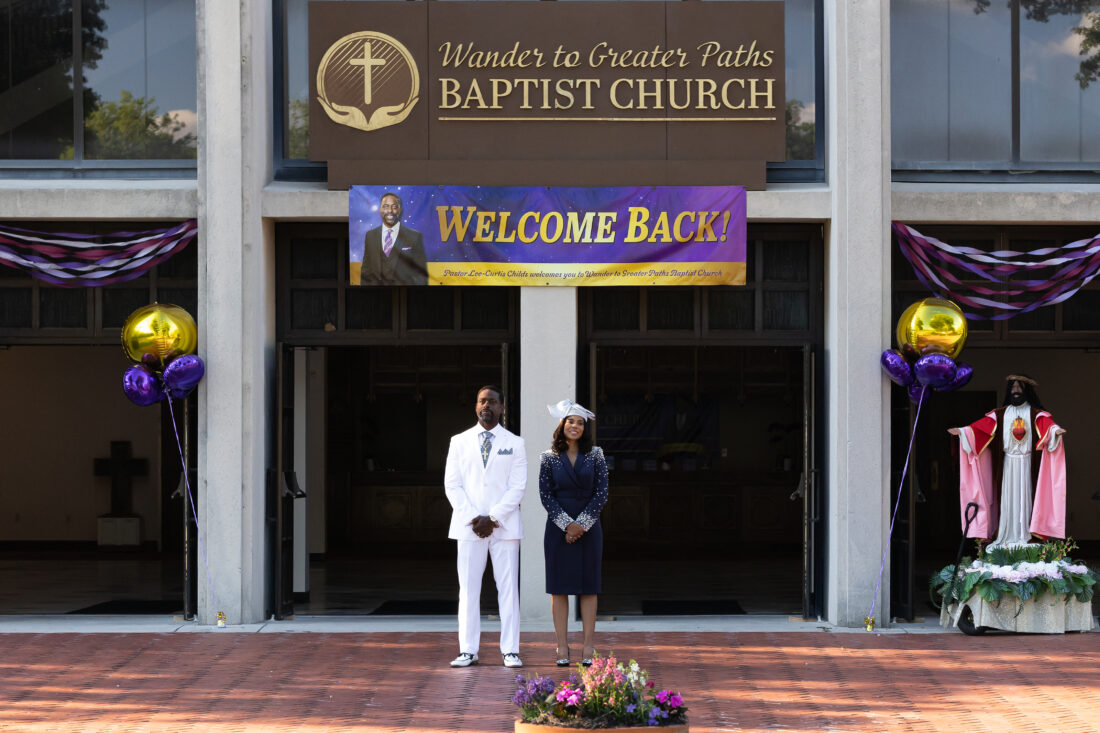In the waning days of August, Village Church pastor Matt Chandler announced he would be taking an “indefinite leave of absence” following an “unwise relationship” he had with a female church member.
“We cannot be a church where anyone is above the Scriptures and above the high heavenly call into Christ Jesus,” Chandler said. “The Word of God holds me to a certain standard. And I fell short.”
Chandler didn’t go into further details — although he did clarify that the relationship was not of the romantic nor sexual kind — but simply stated that what he had done was “unbefitting to someone in my position.”
Unfortunately, Chandler’s situation is something the Church has grown familiar with. Over the last few years, prominent faith leaders from Mark Driscoll to Carl Lentz have had to step away from their role following serious allegations of abuse and misconduct.
The fallout has left many in and out of the Church questioning the role of a pastor and a church can move forward after a scandal.
It’s a question director Adamma Ebo found herself asking after years of growing up in a Southern Baptist church that was no stranger to scandal.
“There have now been moments from earlier on in my life that realize I was questioning the state of organized religion, and certain leaders that helmed it. In truth, it started out just being generally annoyed with some aspects that came along with being Southern Baptist,” Ebo says.
From a young age, she questioned why church services had to start so early and go on for hours. She wondered why she couldn’t celebrate Halloween when her friends got to dress up.
She was able to compartmentalize those beliefs as kooky traditions, but that didn’t apply to every part of the church she had questions about.
“As I got older, I began to recognize that so much of this stuff was directly related to the power and influence of the leaders in charge,” she says. “So many people were willing to follow these leaders to a fault, no matter what hypocrisies they spewed or moral atrocities they committed.”
This recognition reached new heights during her teen years when the pastor of an Atlanta megachurch was found to have had sexual relationships with barely legal young men who were members of his church.
“This scandal came to light, and I began to learn that abuse of power within religious institutions was not only an excruciatingly common occurrence — but also, the general response to these instances of abuse, particularly from members of the church, was to forgive and forget these atrocities; give the correct apologies and prayers and move on,” Ebo shares.
“And that absolutely horrified me.”
Ebo knew she wasn’t the only church goer feeling this way. And she knew that she had a message she wanted to share with the Church.
In 2018, Ebo directed a short film called Honk for Jesus. The film followed a pastor and his wife navigating life post-scandal. The story resonated with audiences and left others wanting more, which led Ebo to turn it into a longer film (and a longer name) starring Sterling K. Brown and Regina Hall.
Honk for Jesus. Save Your Soul. follows Atlanta megachurch pastor Lee-Curtis Childs (Brown) and his wife First Lady Trinitie (Hall) who are working to regain their status following a scandal. The satirical comedy switches back and forth between a documentary of the Childs’ going to great lengths to get back in the good graces of their congregants and the real, truthful moments of what happens to a church family post-tragedy.
Hall and Brown both grew up in the church, and neither were shielded from the shortcomings of church leaders. But despite its faults, each of them joined the project because of their love for the church and their hope for it to be something better, something they believe it has the potential to become.
“I entered this coming from a place of love with an institution that has such prominence in Black culture and in the Black community,” Brown says.
“But it’s still something that is worth critiquing and has the space to evolve,” he continues. “My hope is that the folks who see it — who are a part of that community — will recognize the love with which the movie was made and see the space for evolution as well.”
“I think especially if you love something, you want it to become the best version of itself. So hopefully folks bring that sort of critical thinking to every institution they encounter.”
Hall, who also grew up in church and has family members who work in ministries, wanted to show a different side to church leaders that the media does not always show.
“It was wonderful to show the quiet strength behind Trinitie and her decision to stay with Lee-Curtis after the scandal,” Hall explains. “I think you grow to have some compassion and some sense of understanding her better, whether you agreed with her decision or not. Even in the moments of doubt, when she wants to leave, her mother tells her ‘you’re gonna stay.’ And that is what it really means to be a Christian.”
The Childs show Christian leaders at their messiest. They’re not always happy or always peaceful. They fight and scream at each other. They sing along to Crime Mob songs. They can’t control their tempers. They aren’t the pastors we might typically see, despite how much they present themselves that way.
But in spite of the rough edges, Hall and Brown’s depictions of Christian leaders show pastors and their family members for who they really are: human beings.
“The film is not a critique of the church,” Hall clarifies, “but it’s two individuals and what they’ve been indoctrinated to believe from the institution itself. But when you watch it for yourself, you see they’re both suffering in their own ways. And I think that’s why you can have compassion for both of them.”
At their core, leaders want to lead people to a better place. But there are no such things as faultless leaders. If you look close enough, you’ll see the cracks and glue holding someone together.
That’s what Brown wants people to understand about Lee-Curtis. He’s a faulty human, but he’s trying.

“I believe Lee-Curtis Childs is a child of God. I think he really loves being in front of people. I mean, he is a showman, for sure. But I think he loves the idea of being able to save souls and do the Lord’s work,” Brown says.
“I think he starts off with wonderful intentions to give to different aspects of his congregants and young men in particular that he really does want to mentor,” he continues, “but I think that like a moth to the flame, the closer he gets, the easier it is for him to get burned. And that’s when his intentions become misguided.”
Brown may be describing only his fictional character in a movie, but in a way he’s describing a large majority of leaders who have crashed and burned. Many have flown a bit too close to the sun and consequently fell quicker than they rose. In a matter of days, a ministry that spent years to build up can come crashing to the ground.
Acknowledging the problem is only the first step toward the solution. Everyone, whether you’re in, out or around the Church, is aware that there are leaders who are crossing or blurring lines and misusing their calling.
But how can we fix that? Brown thinks he knows the solution the Church has been looking for.
“I think if you want something — especially if you love it — you want it to become the best version of itself. So hopefully folks bring that sort of critical thinking to every institution that they encounter,” he says. “Things that we take for granted or as the status quo will be that indefinitely, but there’s room for things to grow, to evolve, to change. Just question institutions.”
That seems to be a common theme
among young people who grew up in the church, people like the Ebo sisters. The ways of the Church are being questioned, taken apart and put back together to ensure God’s kingdom is a place where all are welcome.
It isn’t easy, and it can actually be painful, but hope remains that leaving no stone unturned will result in something even better.
One way to “do better” is to provide a different path forward, and that’s what the Ebo sisters wanted from Nicole Beharie and Conphidance’s characters, Shakura and Keon Sumptor, respectively. The Sumptors represent the next generation of pastors who are learning lessons from those before them while forging a new path forward.

That’s not to say the Sumptors should be placed on a church pedestal either.They have their own issues to work through. Rather, it shows that things don’t have to be the same as it was. The couple co-pastor a church that looks, feels and even sounds different from other places before. The couple says they’ve learned so much from other leaders like the Childs, but there’s an understanding that what they really mean is they’ve learned what not to do from these fallen leaders.
At the end of the day, there’s room for old and new traditions to live together in harmony.
“Despite how critical I am of ‘the Church,’” Ebo says, “there is still so much about it that I love and find beneficial and beautiful. I am still so culturally linked to what it means to my history and my community as a Black woman from Atlanta, Georgia, that it doesn’t feel right to just leave it all behind. Not when we can truly come together, deconstruct the issues — and just do better.”













